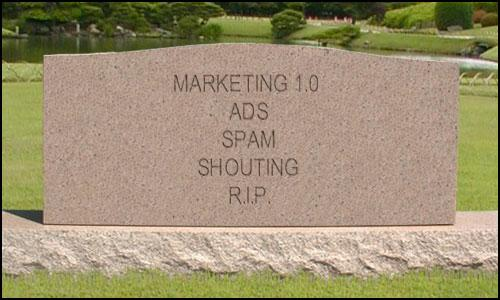 Want to Grow Your Business With Blogging? Here’s Your Quick-Start Guide
Want to Grow Your Business With Blogging? Here’s Your Quick-Start Guide
Guest post by Claudia Somerfield
One of the easiest and most powerful tools for growing your business is the business blog. Most marketing advisers suggest including a business blog as a sales tool. If you are a business owner, entrepreneur, or thought-leading professional and want to expand your influence with blogging, here is a quick-start guide that will have you up and running in no time at all.
Start with a clear plan
A common mistake that many businesses make when they start a blog is not having a long term plan in place. This applies to various aspects of the blog.
Consider these questions:
- What is the core purpose of your blog?
- How do you want it to look?
- What should be the writing style and tone of your blog posts?
- How openly do you want to position your blog as a sales tool?
- What kind of interface do you want to offer your blog readers to contact you?
- How do you want people to find your blog on a web search?
Having a clear cut strategy makes your blog much more focused, consistent and professional.
The web is often referred to as a fickle medium. If your blog readers do not find your blog of value, they will not return, they will not click through to your products or services, and they will not promote it by sharing it on their social networks.
At the end of the day, your reader looks for value, and your long term plan can help determine the specific nature and scope of the value you will offer.
Select your tool
The interface that you will use to upload and publish content on your blog is known as your blogging platform. There are several popular blogging platforms that you can choose from such as Blogger, Wordpress, and TypePad. While your web developer may provide you with a "home-made" interface on your website to create and add content to your blog, it is much easier and more efficient to integrate one of the more popular platforms. Take a look at what these platforms offer, and choose the one that appeals to you the most.
Create classy content
If you want your business blog to attract readers, and if you want the blog to become an integral part of your business strategy, you will have generate high quality content. You may want to employ the services of a professional blogger or content writer for this or you can do it yourself.
In the context of a business, there is no one who knows the nuances of the business better than you. However, you will want to keep in mind that it takes consistent posting of good content on a regular basis on your blog for it to grow in value.
Many business blogs make the mistake of compromising quality of content for quantity, over-using techniques like link building and search engine optimization to get more traffic to their blogs, but across time, they fail to engage the readers or to get them to respond to their call to action.
Promote
The key to popularizing your blog is to promote it. This can be as simple as sending out email announcements every time you update your blog, sharing it on your social networks, and notifying what are known as pinging services that will update web directories with your new content.
Social bookmarking sites are another commonly used promotion tool. The most popular social bookmarking platforms that are worth your time are Delicious, Digg, and StumbleUpon.
Network
Start building relationships with other business bloggers. Promote their work on your networks. This may seem counterproductive especially if they are your competitors, but it will establish you as a fair and open networker. This will also help you study other business blogs and learn the tricks of the trade. Study how they use interesting content to get their readers attention and how they convert it either into return visits or a click through to products and services.
Visit other blogs and leave your opinions in the comments section. As people take note of your opinion, you will find them wanting to network with you and your blog. As with everything in life, blogging for business has a certain amount of give and take involved. The more you give, the greater your chances of taking something back.
Business blogging is proven strategy that will help your business grow. However, for a blog to be noticed and acquire a reputation among readers and clients, it takes time and dedicated effort.
Study the basics of search engine optimization and keyword research so that you are able to bolster your content with the technical strength it needs to reach the top of search results. Make your content interesting and useful.
Remember that your blog posts are not direct sales messages, but rather high-value assets with which to build a community of interested readers who are your potential customers.
As you grow your dedicated readership, you will find that your blog has become a significant source of web traffic, leads, referrals, and new business.
====
About the author: Claudia is a blogger by profession. She loves writing on luxury and technology. She recently read an article on a t-rex car that attracted her attention. Her next writing project involves a flying car.



